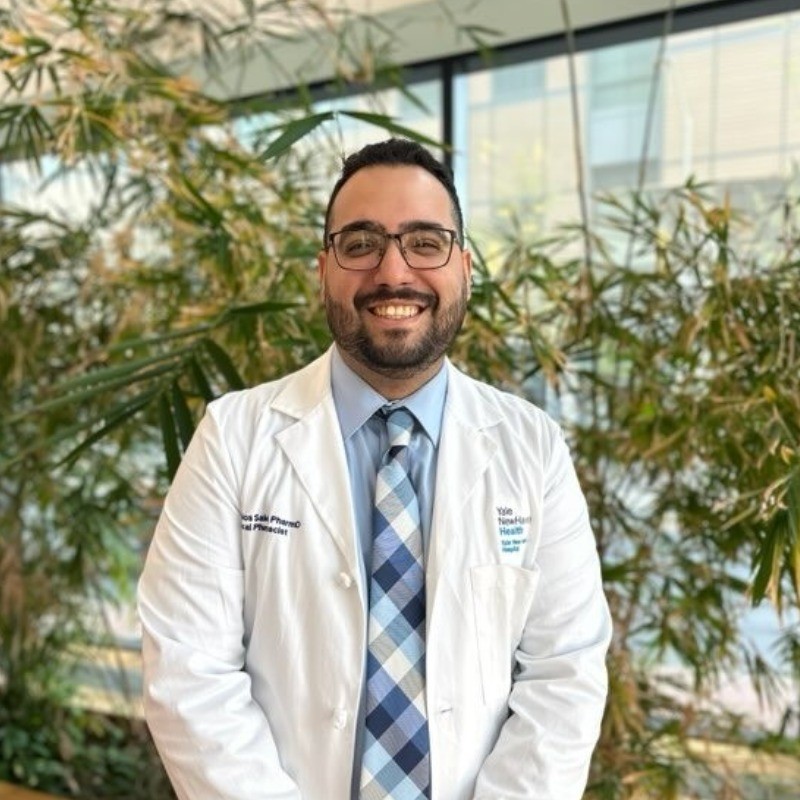CPA 149th ANNUAL MEETING

For 149 years, The Connecticut Pharmacists Association (CPA) has been a cornerstone of the pharmacy community, providing essential resources, advocacy, and education to pharmacists across our state. Our annual meeting is a highlight of the year, bringing together professionals, industry leaders, and innovators for a day of learning, networking, and collaboration. Because the 2024 meeting will launch our sesquicentennial (150th anniversary) year, the event promises to be particularly impactful, with a diverse range of speakers, workshops, and panels designed to address the current trends and challenges in pharmacy practice.
KEYNOTE ADDRESS
Sept. 18, 9AM

Bryan Cafferelli
Commissioner, Connecticut Dept. of Consumer Protection

Connecticut Pharmacists Association is accredited by the Accreditation Council for Pharmacy Education (ACPE) as providers of continuing pharmacy education. Pharmacists and technicians inattendance who complete an evaluation will receive up to 6.5 contact hours (0.65 CEUs) for this knowledge and application-based seminar. Statements of credit will be uploaded to CPE monitor.
Continental Breakfast
Keynote Address: Bryan Cafferelli, Commissioner, CT Dept of Consumer Protection
Law CE Learning Objectives 1. Recall key changes that occurred in CT pharmacy law during the 2024 Legislative Session. 2. Discuss the impact of key 2024 legislative changes on pharmacy professionals statewide. 3. Explain the regulation development and approval process in Connecticut.
Navigating Complex Patient Care: A Case Discussion
Learning Objectives: 1. Apply the steps of the pharmacist's patient care process (PPCP) to a patient case. 2. Develop a personalized medication management plan that addresses the patient's unique needs and concerns. 3. Evaluate contemporary guidelines for management of chronic diseases to enhance patient care and treatment outcomes. 4. Integrate social determinants of health (SDOH) into therapeutic care planning.
Birth Control: Clinical Pearls on the Prescribing Role of the Pharmacist
Learning Objectives 1. Explain the mechanism of hormonal contraceptives and their benefits and risks. 2. Identify patients who are eligible for hormonal contraceptives based on their characteristics. 3. Identify what birth control pharmacists in Connecticut can prescribe and the prescribing requirements. 4. Identify important patient counseling points and barriers to acquiring contraceptives. 5. Describe emergency contraceptive options.
Minimizing Overall Waste: Evaluating Standard Stock in an Academic Medical Center
Learning Objectives 1. Define the current state of standard stock medications at Yale New Haven Health. 2. Describe a medication evaluation process specific for standard stock medications. 3. Explain the impact of the proposed inventory management changes on medication waste and cost savings. 4. Discuss potential implementation barriers of the medication evaluation process.
PrEP in Practice: Key Clinical Pearls for Enhancing HIV Prevention
Learning Objectives 1. Describe HIV/AIDS public health impact and incidence in Connecticut. 2. Explain reasons for FDA approval of PrEP for the prevention of HIV transmission in high-risk populations. 3. Describe the mechanism of action of PrEP, administration considerations, side effects. 4. Define target populations, considered high risk and proposed to benefit from PrEP therapy regimens, highlighting adherence and efficacy. 5. Identify the provider role in therapy implementation, patient education, barriers to therapy implementation and access to PrEP therapy in CT.
Concurent Sessions
Understanding the Relationship Between Legal Obligations and Contractual Obligations
Law CE Learning Objectives 1. Discuss payer contracts, including major PBM contracts. 2. Identify applicable federal and state laws for pharmacist conduct. 3. Recognize a pharmacy’s legal rights and remedies with private payers and the role that pharmacists, pharmacy technicians, and other pharmacy personnel play in the relationship with private payers and invoking these rights. 4. Recall licensees’—including— a pharmacy’s, pharmacist’s, and pharmacy technician’s legal rights and obligations with government parties, including payers and administrative agencies. 5. Explain the relationships between federal and state administrative agencies and private payers.
Pharmacists' Role in Community-Based Harm Reduction: Making an Impact on Substance Misuse & Mental Health
Learning Objectives 1. Describe the Strategic Prevention Framework and its use in harm reduction initiatives. 2. Identify key steps of academic detailing to promote best practices in prevention of substance misuse. 3. Identify key challenges in changing clinical practices related to substance misuse. 4. Compare and contrast different strategies to overcome resistance in clinicians' efforts to reduce substance misuse. 5. Summarize pharmacist and technician involvement in key harm reduction efforts to reduce substance misuse and improve mental health outcomes.
Are Compounded GLP-1 Agonists Safe for Your Patients?
Learning Objectives 1. Recognize the characteristics of semaglutide that limit its oral and sublingual absorption. 2. Describe considerations for selecting acceptable sources for active pharmaceutical ingredients (APIs) used in compounding. 3. Recognize active pharmaceutical ingredients that can be used in compounding. 4. List excipients used to formulate stable, bioavailable semaglutide. 5. Describe the standards required for compounding semaglutide.
Beyond Baby Blues: A Pharmacist's Guide to Postpartum Depression
Learning Objectives 1. Demonstrate an understanding of postpartum depression (PPD) etiology, signs and symptoms. 2. Evaluate appropriate current screening recommendations for PPD. 3. Compare treatment options for PPD.
Credentialing in Pharmacy: What Pharmacists Need to Know
Learning Objectives 1. Define and differentiate between credentialing and privileging in the context of pharmacy practice. 2. Explain the principles and framework established by the Council on Credentialing in Pharmacy (CCP). 3. Identify the need and relevant contexts for implementing credentialing and privileging processes in pharmacy settings.
Prioritizing You
Learning Objectives 1. Define personal well-being and self-care. 2. Discuss the difference between personal well-being and self-care. 3. Describe the signs and symptoms of burnout that pharmacy professionals should look out for in themselves and members of their pharmacy team. 4. Identify strategies that pharmacy professionals can employ to support a coworker who is showing signs of burnout. 5. Identify three new strategies you would like to engage in to prioritize you.
'Tis the Season for RSV
This session is supported in part by a grant from GSK. Learning Objectives: 1. Recognize signs and symptoms of RSV. 2. Define eligibility for patients to get RSV vaccine. 3. Identify different RSV vaccines on the market. 4. Review side effects and data associated with each vaccine. 5. Discuss how to counsel patients about RSV and the different vaccine options available.
Looking Forward While Looking Back: Kickoff to the CPA Sesquicentennial
Cocktail Reception
Annual CPA Awards Dinner and Board Installation
SPEAKERS
Stefani Nigro
PharmD; Associate Clinical Professor, UConn School of Pharmacy
Robin Bogner
PhD; Director, Kildsig Center for Pharmaceutical Processing Research (CPPR), UConn
Rebecca Rakiec
Pharmacy Intern, YNHH, Outpatient Pharmacy Services - Specialty PharmacyOutpatient
Raye J. Mutcherson II., Ph. D
Specialty Pharmacy Intern Specialty Pharmacy Intern Yale New Haven Hospital
Nathaniel Rickles
PharmD, PhD, BCPP; UConn School of Pharmacy Associate Dean for Admissions and Student Affairs
Monica Fahmy
PharmD, BCPS; Ambulatory Clinical Pharmacy Specialist - Psychiatry and Behavioral Health, Yale New Haven Hospital
Lucas Morgan
Partner, Frier Levitt Healthcare and Life Sciences Litigation groups
Krystalyn Weaver
Executive Vice President and Chief Executive Officer, National Alliance of State Pharmacy Associations; Chair, Council on Credentialing
Kirolos Saleh, PharmD, MBA, MHAc, RPh
PGY2 Health System Pharmacy Administration and Leadership Resident at Yale New Haven Hospital
Dae Y. Lee
Pharmacist Attorney, Frier Levitt, Life Sciences Group
Bryan Cafferelli
Commissioner, Dept of Consumer Protection
















